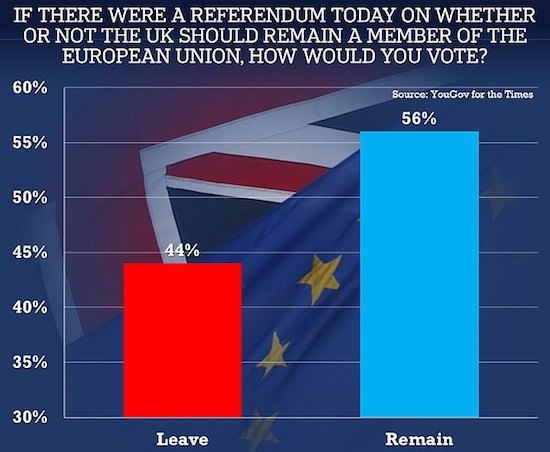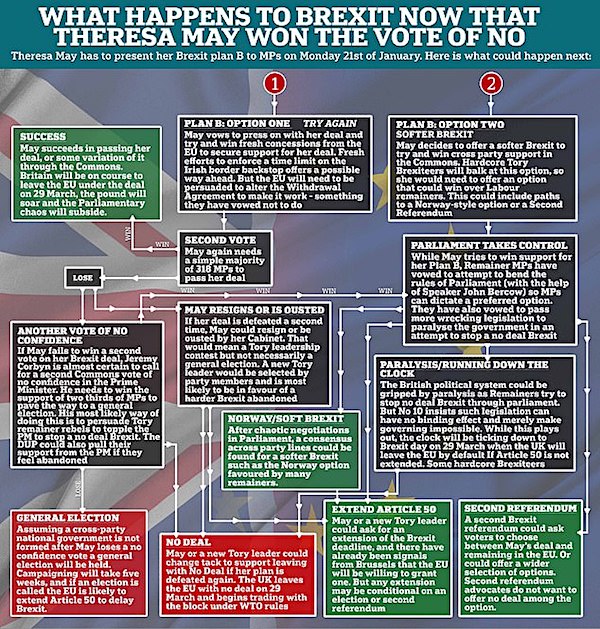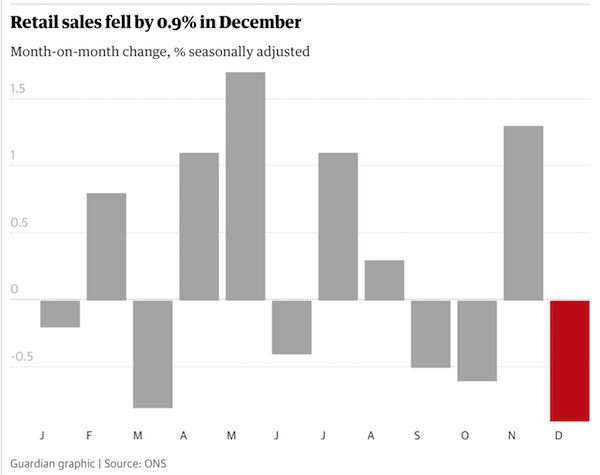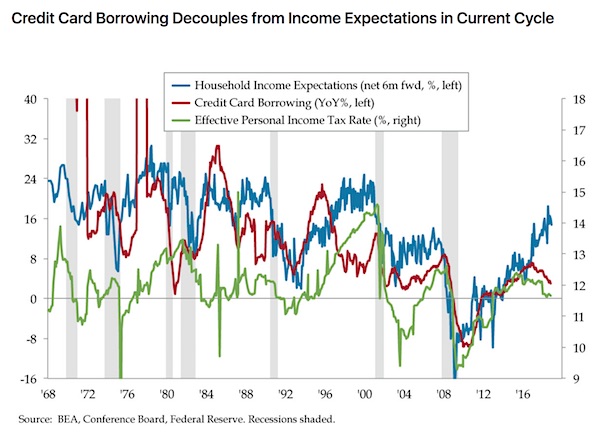
Pablo Picasso Guitar on a table 1922

Is this the worst day for fake news to date? It’s hard to keep track. It’s just that this one was taken up by so many hoping for -finally!- impeachment. Please Lord make it stop.
Two reasons why Mueller issued his statement: 1) the credibility of the Special Counsel itself (since every outlet ran with the -false- BuzzFeed story), 2) members of Congress were calling for investigations based on the story (would have been even more embarrassing than making the statement).
One Shimon Prokupecz on Twitter: “We cannot underestimate the statement disputing Buzzfeed’s story from the special counsel. I’m sure it pained them to do this. I’m sure this went through many levels at the DOJ and FBI. They don’t talk. This is massive.”
Trump on Twitter: “Remember it was Buzzfeed that released the totally discredited “Dossier,” paid for by Crooked Hillary Clinton and the Democrats (as opposition research), on which the entire Russian probe is based! A very sad day for journalism, but a great day for our Country!”
• Mueller Shoots Down Buzzfeed’s Latest Russiagate Scoop With Rare Dismissal (RT)
Special Counsel Robert Mueller has poured cold water on BuzzFeed’s latest Russiagate “bombshell” with a rare public statement calling the article, which claims Trump told his ex-lawyer Cohen to lie to Congress, “not accurate.” BuzzFeed reported that President Donald Trump directly instructed his former attorney, Michael Cohen, to lie to Congress about his plans to build a Trump Tower property in Moscow, citing two anonymous “federal law enforcement officials” as sources that the president had suborned perjury – which, being an actual crime, triggered talk of impeachment “walls closing in” among the anti-Trump “Resistance.”
While half of Congress took to Twitter to wave the story as the long-awaited proof of Collusion, the BuzzFeed reporters could not seem to agree on their own sourcing. Anthony Cormier admitted to CNN he hadn’t seen the proof directly but had two “law enforcement” sources claiming they had seen it, while Jason Leopold told MSNBC they had in fact seen the documents themselves. The smoking gun du jour collapsed further when word came down from Mueller himself – via spokesman Peter Carr – that Buzzfeed’s “description of specific statements to the Special Counsel’s Office, and characterization of documents and testimony obtained by this office, regarding Michael Cohen’s Congressional testimony” were “not accurate.”
Mueller has been extremely tight-lipped about the numerous previous “Russiagate” scoops, and considering the time and effort involved in his own ongoing crusade to take Trump down, his dismissal of BuzzFeed’s would-be bombshell knocked the legs out from under a story whose vague sourcing had already raised questions.
.@Isikoff: "There were red flags about the BuzzFeed story from the get-go." Notes it was inconsistent with Cohen's guilty plea when he said he made false statements about Trump Tower to Congress to be "consistent" with Trump, not at his direction. pic.twitter.com/tgDg6SNPpG
— David Rutz (@DavidRutz) January 19, 2019

And this fits in seamlessly with the Mueller/BuzzFeed thing: The Guardian story has been thoroughly discredited, but 2 months later, US officials are still chasing it. What’s new to me is that it’s the first time I see a Guardian response: “The Guardian has defended the article and said it “relied on a number of sources.” Lame poppycock. And the same thing Buzzfeed says.
• US Asked Ecuadorean Officials About Alleged Assange-Manafort Meeting (R.)
U.S. officials spoke with officials from Ecuador’s British embassy on Friday about an alleged meeting there between President Donald Trump’s former campaign manager, Paul Manafort, and WikiLeaks founder Julian Assange, an Ecuadorean government source said. The Guardian newspaper reported the meeting in November, alleging the two met at least three times, including in 2016, just before WikiLeaks released damaging emails about Trump’s rival in the 2016 presidential elections, Hillary Clinton. Manafort and Assange have both previously denied meeting each other at the embassy.
WikiLeaks, in a statement on Friday entitled the “U.S. interrogation of Ecuadorian diplomats,” accused Ecuador’s government of assisting the United States in prosecuting Assange, who first sought asylum in the embassy in 2012. The source said the embassy officials, at the request of the U.S. Justice Department, provided testimony in Quito at facilities provided by Ecuadorean authorities. [..] Part of Mueller’s probe has involved looking into whether Trump associates may have had advance notice before WikiLeaks published emails stolen by Russian hackers from Democratic computer networks to damage Clinton. WikiLeaks called the Guardian’s story “indisputably fabricated” and said it was being used as a pretext for the United States to prosecute Assange. The Guardian has defended the article and said it “relied on a number of sources.”

But neither one of the two main parties do. How screwed up is that? Nobody represents the majority.
• 56% Majority Of Britons Now Want To Remain In The EU – Poll (DM)
A majority of Britons now say they want to stay in the EU after Theresa May’s Brexit plan suffered a massive defeat, a new poll published today has found. A YouGov survey asked 1,070 voters how they would vote in a second Brexit referendum if it were held today – and found Remain has stretched out a 12-point lead over Leave, with 56% saying they would vote to stay in the EU versus 44% in favour of leaving. The voters were questioned the day after the PM’s Brexit plan suffered a crushing defeat – leaving the machinery of government deadlocked and with the bitter divisions among MPs offering no clear way ahead.

Ministers are now at war over Brexit, openly clashing over whether Britain should be willing to crash out without a deal on March 29, or back a softer Brexit or second referendum. The Prime Minister must make a statement on Monday where she will lay out her ‘next steps’ on a Brexit ‘plan B’ before a week of debate on the various options. The following week, MPs will vote on their preferred course of action, putting huge pressure on the Prime Minister to adopt it. With Westminster gripped by chaos, the new poll suggests voters are losing faith in Brexit with growing numbers now backing Remain. The survey for The Times found that 56% of those polled would now back staying in the EU, while the same proportion back a second referendum. And voters were even more likely to want to stay in the bloc if the only other option was the PM’s Brexit deal, with Remain leading by 65% to 35%.


If Article 50 were extended, which looks pretty sure, Britain will have to vote in European elections. But their seats have already been given out to others.
• Extending The Brexit Deadline Could Clash With Coming EU Elections (CNBC)
Extending the official Brexit deadline for the U.K. could bring a wave of extra logistical and political problems for the EU. The ongoing deadlock has sparked a debate on the potential extension of Article 50 — the legal means by which the U.K. leaves the EU. However, there is strong opposition from some European lawmakers over giving more time to the U.K. to sort out its domestic politics. The U.K. is set to leave the EU on March 29 — but this could change if the U.K. asks for an extension and the other 27 member nations accept the request. Extending the departure beyond the agreed date would likely clash with European parliamentary elections that are set to take place between May 23 and 26. The chamber is made of lawmakers from all 28 European member countries, including the U.K., and is responsible for approving European policies, such as the Union’s total budget.
“What we will not let happen, deal or no deal, is that the mess in British politics is again imported into European politics. While we understand the U.K. could need more time, for us it is unthinkable that Article 50 is prolonged beyond the European Elections,” Guy Verhofstadt, a member of the European Parliament and its representative in Brexit negotiations, said on Twitter on Wednesday. [..] Seb Dance, member of the European Parliament for the U.K. Labour party, said the prospect of having Brexit and the European elections clashing “is a logistical headache.” “The impact of delaying Brexit on the EU elections is certainly troublesome logistically speaking,” he said, “but politically speaking it shouldn’t make a difference as it is entirely possible that elections take place in the other member states without needing to take place in Britain.”
[..] According to a Brussels-based European official, who did not want to be named due to the sensitivity surrounding the Brexit talks, an extension would likely mean that the U.K. would have to participate in the vote. This is because it would still technically be a member of the European Union. Zsolt Darvas, senior fellow at Bruegel, reiterated this point in an email to CNBC Friday. “If the extension goes beyond the elections, the U.K. would have to elect members of the European Parliament. Not expecting this, the European Parliament has already agreed on how to allocate the U.K. seats after Brexit. That agreement will have to be revised, or perhaps its implementation be postponed after the actual, delayed Brexit date.”
“From the U.K. side, it might look awkward to elect members of the European Parliament when people expect that the U.K. will leave the EU not much after the European elections; plus the U.K. would need to act quickly to make the European Parliament election possible, which would also involve some costs.”

“..the Common Fisheries Quota has for the past 34 years given 84% of the cod in the English Channel to France and just 9% to the UK..”
• EU Loves British Money More Than It Loves Democracy (Clark)
The European establishment is desperate for Britain to reconsider Brexit. Internationalist ideals about ‘preserving European unity’, don’t come in to it, this is all about protecting income streams. Consider a few facts. If Britain does leave without a deal, then the EU as an institution would be considerably worse off. The UK has consistently been one of the top three countries that puts most into the EU budget (after Germany and France). It is one of ten countries that puts more into the EU than it gets out. In 2017, the UK’s net contribution was £9bn. If Britain leaves, the EU faces a financial shortfall. In 2016, 16 countries were net receivers, including Donald Tusk’s Poland. Little wonder that he regards Britain staying as “the only positive solution”.
The very generous financial remuneration packages of EU officials might also be threatened by British withdrawal. In December, it was reported that the EU’s top civil servants would be paid over €20,000 a month for the first time, and that Tusk and Juncker would see their packages rise to €32,700 a month. Austerity? Not in Brussels, mon ami! The EU is a fabulous gravy train once you are on board. But the gravy train relies on its richest members not leaving, otherwise who’s going to foot the bill? If Britain leaves with ‘No Deal’, it’s not just the EU budget which will take a hit. In 2017, EU countries sold around £67 billion more in goods and services to the UK, than the UK sold to them. Europe needs full and unfettered access to British markets, much more than Britain needs full and unfettered access to European markets.
[..] The country that would lose out the most with Brexit is Germany. Britain’s trade deficit with Germany is higher than with any other country, even higher than China, whose products are everywhere in our shops! In 2016, the year of the EU referendum, Britain imported around £26 billion more from Germany than it exported. [..] We also have to discuss fishing. The other EU countries do extremely well out of the Common Fisheries Policy, which provides them with access to UK waters. Belgian fleets get around half their catch from British waters! As reported in the Independent, the Common Fisheries Quota has for the past 34 years given 84% of the cod in the English Channel to France and just 9% to the UK. Overall, EU vessels take out around four times as much fish out of UK waters as British vessels take out of EU waters.

Is it Brexit or just the overall state of affairs as the Tories dismantle the NHS?
• UK Patients Stockpile Drugs In Fear Of No-Deal Brexit (G.)
Ministers have been urged by top doctors to reveal the extent of national drug stocks, amid growing evidence patients are stockpiling medication in preparation for a no-deal Brexit. The Royal College of Physicians (RCP), which represents tens of thousands of doctors, urged the government to be more “transparent about national stockpiles, particularly for things that are already in short supply or need refrigeration, such as insulin”. Prof Andrew Goddard, the RCP president, said: “Faith in the system will be created by openness and regular updates to trusts and clinicians; this will allow clinicians to reassure patients.” The Pharmaceutical Services Negotiating Committee (PSNC) has warned medical shortages have increased in recent months.
Generic drugs are usually bought through nationally set tariff prices. However, pharmacies can apply for price concessions under which the NHS will temporarily pay more when the drugs are in short supply. The number of concessions the PSNC applied for went up from 45 in October, to 72 in November and 87 in December. The Guardian has also found evidence some patients are stockpiling drugs, against official guidance. They said they were doing so by ordering drugs from abroad, and by asking their GPs for emergency prescriptions. One diabetic patient has been stockpiling insulin for four months, ordering twice the amount he needs for each of his drugs from the pharmacist.
Robin Hewings, the head of policy at Diabetes UK, backed calls for more transparency from the government about current stock levels to reassure patients. “There is a level of concern that has risen quite a lot [in the last few months] and people with diabetes are talking about stockpiling. The government needs to be more transparent about insulin supplies.”

Only, not really: “..sales grew by 2.7% last year, compared with a growth rate of 2% in 2017.”
• UK Shoppers Rein In Spending As Fears Grow Over Economy (G.)
British consumers reined in their spending in December after splashing out during November on Black Friday promotions, according to official figures that confirmed the tough festive shopping period on the high street. The Office for National Statistics said the quantity of goods bought last month fell by 0.9% compared to November, when Black Friday deals encouraged shoppers to bring forward some of their Christmas spending. All sectors except food and petrol declined on the month, the figures showed, coming after the British Retail Consortium said the key Christmas shopping period had been the worst for retailers since the financial crisis a decade ago.

James Smith, an economist at the City bank ING, said: “After another bumpy week for Brexit, today’s UK retail sales data is a timely reminder that all is not particularly well in the UK economy.” Figures for the three months to December, highlighting the wider trend for consumer spending, showed that the quantity of goods bought dropped by 0.2%. [..] Despite the downturn last month, the latest snapshot showed that retail sales growth for 2018 as a whole was above the level recorded a year earlier. Although significantly below the peak growth rate of 4.7% seen before the Brexit vote in 2016, sales grew by 2.7% last year, compared with a growth rate of 2% in 2017.

Or does it show that they are more confident? Always a nice puzzle. A popular industry POV: people get deeper in debt because they feel so great.
• Rising Credit-Card Use Shows US Consumers Are Strapped (DDMB)
Even though evidence is mounting that the U.S. economy may be soon heading into a recession, there are plenty of analysts who say that the surge in credit card borrowing is a sign of strong confidence among households. That’s hardly the case. In fact, households’ confidence in the future growth of their incomes has been cooling since late last summer, which means borrowers will only reach for what’s in their wallet to compensate for what their paychecks will not cover. Many working adults have no recollection of credit card borrowing not being a mainstay among their financing options. But then, few would be able to identify a Diners Club card, which was a popular brand during the 1980s “yuppie” era when Americans first began to embrace credit card spending in earnest.
These days, consumers are not keen to lean on credit cards, partly due to a cultural and financial shift in the industry. The financial crisis arguably altered households’ views on charging beyond their means. It didn’t hurt that the availability of subprime credit all but disappeared for a few years or that the interest rate on credit cards remained in double-digit territory despite the Federal Reserve’s zero interest rate policy. That said, the idea of frugality re-entered many households’ thinking in the wake of the severe hardship the foreclosure crisis brought to bear on millions of working Americans. Debit cards became the predominant form of plastic used at the checkout.
And yet, consumer credit likely rounded out 2019 at a new $4 trillion milestone as runaway higher educationand car-price inflation coupled with ridiculously looser lending standards pushed households to take on record levels of student loan and auto debt. At roughly $1 trillion, credit cards are but a co-star in a star-studded, full-length feature film. A long history of credit card borrowing suggests that we would have multiples of today’s $1.04 billion in outstanding balances had the growth rate of spending on plastic maintained the headier double-digit paces clocked in the 1980s and 1990s.


Shares down 13%.
• Tesla Cuts 7% Of Workforce, Musk Sees ‘Very Difficult’ Road Ahead (CNBC)
Tesla is cutting its full-time staff headcount by about 7 percent, as it ramps up production of its Model 3 sedans, CEO Elon Musk said Friday. The announcement follows recent cost-cutting measures the company has made in a bid to reduce the price of its products and boost margins. Tesla shares fell 13 percent by the end of trading Friday. In an email to employees, Musk said the company faces a “very difficult” road ahead in its long-term goal to sell affordable renewable energy products, noting the company is younger than other players in the industry. “Tesla will need to make these cuts while increasing the Model 3 production rate and making many manufacturing engineering improvements in the coming months,” Musk said.
“Attempting to build affordable clean energy products at scale necessarily requires extreme effort and relentless creativity, but succeeding in our mission is essential to ensure that the future is good, so we must do everything we can to advance the cause.” The exact number of employees who will be laid off has not been disclosed. However in an October tweet, Musk said Tesla had a staff count of 45,000. If still true today, that would mean 3,150 layoffs. Musk said Friday that Tesla faces “an extremely difficult challenge” in making its electric vehicles and solar products a competitive alternative to traditional vehicles and energy products that rely on fossil fuels.

Plunging share prices are the last thing Tesla needs.
• Tesla Has $920 Million In Debt Coming Due, A Third Of Company’s Cash (CNBC)
Tesla has a billion dollar debt coming due, and it could wipe out nearly a third of the company’s cash if the stock price doesn’t improve. About $920 million in convertible senior notes expires on March 1 at a conversion price of $359.87 per share. But Tesla’s stock hasn’t traded above $359 for weeks. If the shares are about $359.87, then Tesla’s debt converts into Tesla shares. If not, Tesla will have to pay the debt in cash. Tesla reported cash and cash equivalents of $3.37 billion at the end of its September quarter. The company continues to reveal pressure to maintain profitability, and announced Friday it would cut 7 percent of its full-time workforce. Shares fell more than 10 percent Friday following the announcement to trade around $310 per share.

If only because of the sanctions.
• Russia Outshines China To Become World’s 5th Biggest Holder Of Gold (RT)
The Central Bank of Russia reported purchasing 8.5 million troy ounces of gold in January-November 2018. With its 67.6 million ounces of gold Russia is now the world’s fifth largest holder behind the US, Germany, France and Italy. China dropped to sixth place as it reported an increase in gold reserves just once in more than two years – to 59.6 million ounces in December 2018 from 59.2 million ounces in October 2016. Industry sources told Reuters that Western sanctions against Russia lifted the country’s gold buying to record highs in 2018. One of the reasons Russia’s Central Bank was betting on the yellow metal was because it could not be frozen or blacklisted, sources explained.
“It seems that there is an aim to diversify from American assets,” said a source in one of Russia’s gold producers, referring to the Central Bank’s holdings. While purchases of the precious metal by Russia jumped last year the country continued getting rid of US Treasury securities. Earlier this month, Russia’s Central Bank reported that it cut the share of the US dollar in the country’s foreign reserves to a historic low, transferring nearly $100 billion into the euro, the Japanese yen and the Chinese yuan. The step came as a part of a broader state policy on eliminating reliance on the greenback. According to sources, the Central Bank has been purchasing a significant portion of Russia’s domestic gold production, which is also rising.

As the EU promotes Roundup, this court has the only right attitude, referring to “a precautionary principle in French law.” All GMO crops should be banned because of that principle. The risks are too great, and there’s likely no way back. You can’t put the onus of proof on society at large, Monsanto will have to prove there is no risk or damage at all, not the other way around. Nassim Taleb is the only person I’ve seen who also says this as the most important thing concerning GMO.
• French Court Cites Precautionary Principle To Cancel Monsanto Permit (R.)
A French court canceled the license for one of Monsanto’s glyphosate-based weedkillers on Tuesday over safety concerns, placing an immediate ban on Roundup Pro 360 in the latest legal blow to the Bayer-owned business. Germany’s Bayer, which bought Monsanto for $63 billion last year, faces thousands of U.S. lawsuits by people who say its Roundup and Ranger Pro products caused their cancer. A court in Lyon in southeast France ruled that the approval granted by French environment agency ANSES in 2017 for Roundup Pro 360 had failed to take into account potential health risks. Bayer, which said it disagreed with the decision and was considering its legal options, has cited regulatory rulings as well as scientific studies that found glyphosate to be safe.
The firm is appealing a first U.S. court ruling that awarded $78 million in damages to a school groundskeeper from California. “Bayer disagrees with the decision taken by the Administrative Court of Lyon to cancel the marketing authorization for RoundUp Pro 360,” it said in a statement. “This product formulation, like all crop protection products, has been subject to a strict evaluation by the French authorities (ANSES), an independent body and guarantor of the public health security.” The French court said ANSES had not respected a precautionary principle in French law, notably by not conducting a specific evaluation of health risks for Roundup Pro 360.
“Despite the European Union’s approval of the active substance (glyphosate), the court considered that scientific studies and animal experiments showed Roundup Pro 360 … is a potentially carcinogenic product for humans, suspected of being toxic for human reproduction and for aquatic organisms,” the court said in a summary of its ruling. ANSES said it was still examining the court ruling, but that the decision was effective immediately. “As a consequence, the sale, distribution and use of RoundUp Pro 360 are banned as of today,” the agency said in an email.









Home › Forums › Debt Rattle January 19 2019